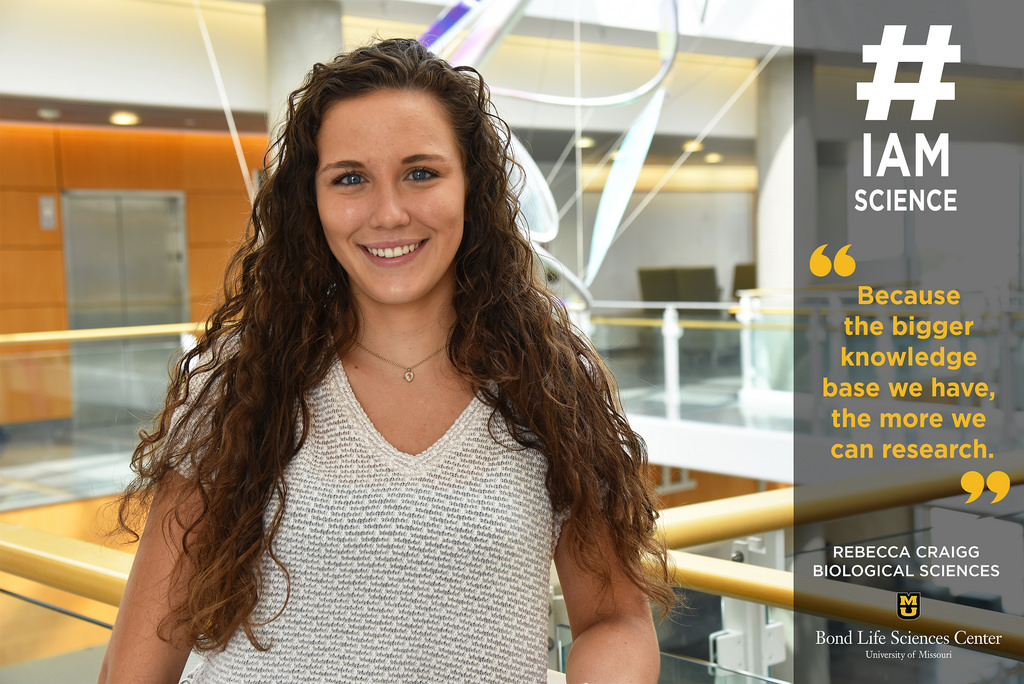Published on
By Erica Overfelt | Bond LSC
Being involved in research changes perspective in and out of the lab.
Senior Rebecca Craigg came to college thinking science always had an answer.
“When I came in as a freshman I thought everything should work,” Craigg said. “If you do an experiment you should get a result. Now, I am not afraid to fail.”
Craigg joined the Cornelison lab freshman year. As a first-generation college student Rebecca was unsure of what was in store for her. But as she grew as a researcher, she also did as a person and started to understand the value of working in a lab.
“I would say my freshman year, it was a lot of ‘watch and learn,’” Craigg said. “When you figure it out, you are confident, get comfortable with it and try it on your own. This by far has helped me developed most as a person. You run into problems every day and you have to solve them, from big to small. Even though there are people to guide you, you have to run it on your own and figure it out yourself.”
The Cornelison lab researches regeneration and disease in muscles. They study how cells respond to different cell signals in order to rapidly, efficiently, and repeatedly respond to muscle damage or disease. Since freshman year Craigg has studied a specific receptor EphA7, which responds to different factors and is connected to how muscles rebuild.
This summer marks the first time Craigg has been in the lab full time, an opportunity she received by being chosen as a Cherng Summer Scholar.
“I originally started working on that project with a grad student who graduated,” Craigg said. “Now it’s become more independent and helped me develop valuable skills.”
Craigg has put those skills to work on service trips to Honduras and Nicaragua where she helped provide medical and public helth assistance and assisted with water engineering, respectively. These trips shaped her perspective on the importance of science and its lasting impacts.
“That initial exposure in the clinic where I helped give medicine to people with water borne illnesses and parasites, I felt bad, yes, but it made me think about what happens the next time,” Craigg said. “You can keep treating diseases but you need to solve the problem.”
And that’s why Craigg’s dream is to be involved with Doctors Without Borders. She wishes to create a lasting impact on the community she serves.
Craigg volunteer work also has an impact closer to home. Sophomore year Craigg started a service organization called University of Missouri Student Organization for Human and Animal Interaction, the organization volunteers at animal shelters through the Research Center for Human Animal Interaction. The club helps with research.
“Animal interaction is important for humans,” Craigg said. “They look at the importance of animals to human health and the benefits of the human animal bond.”
